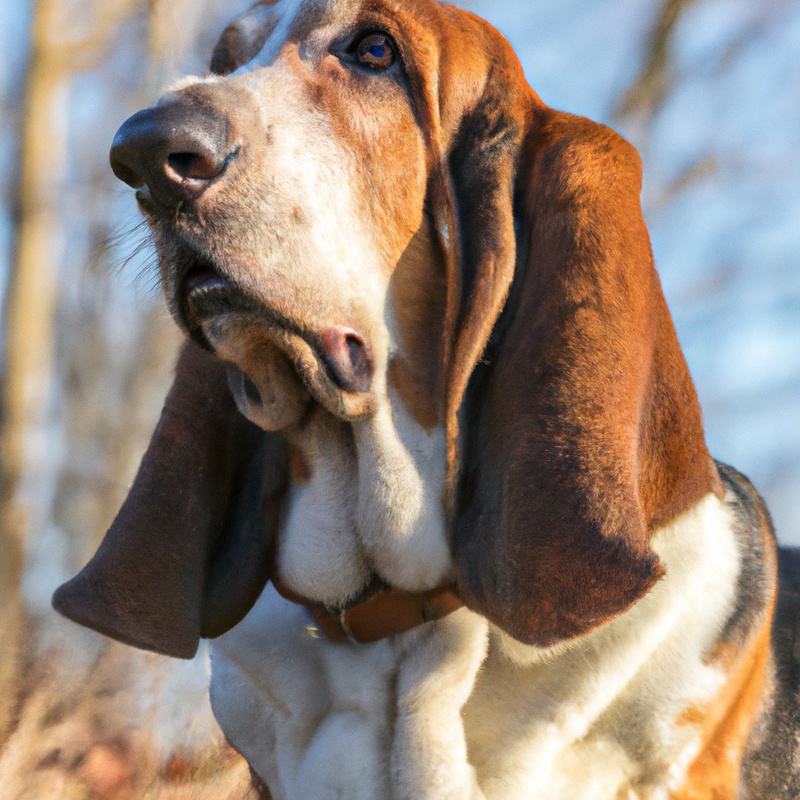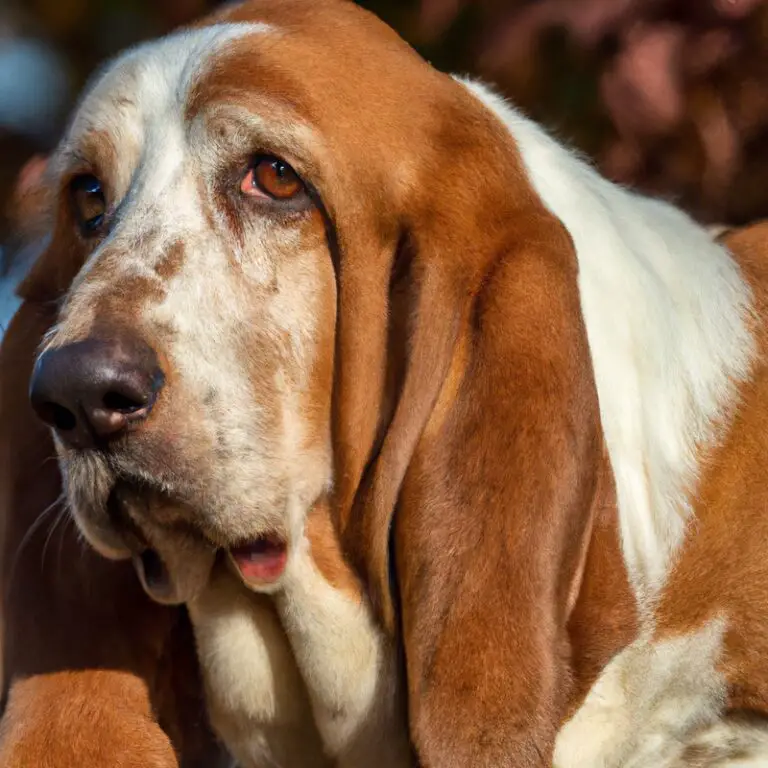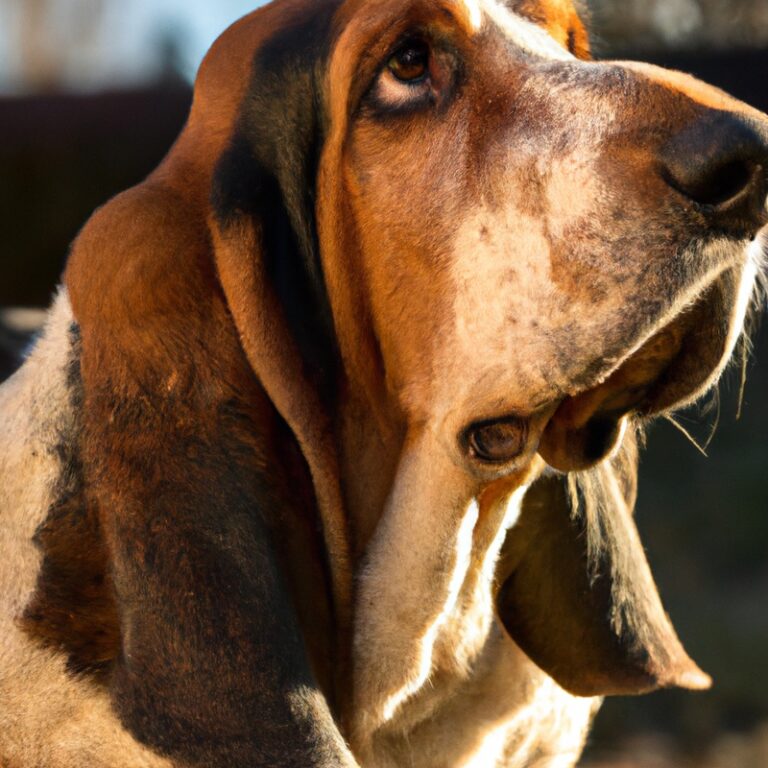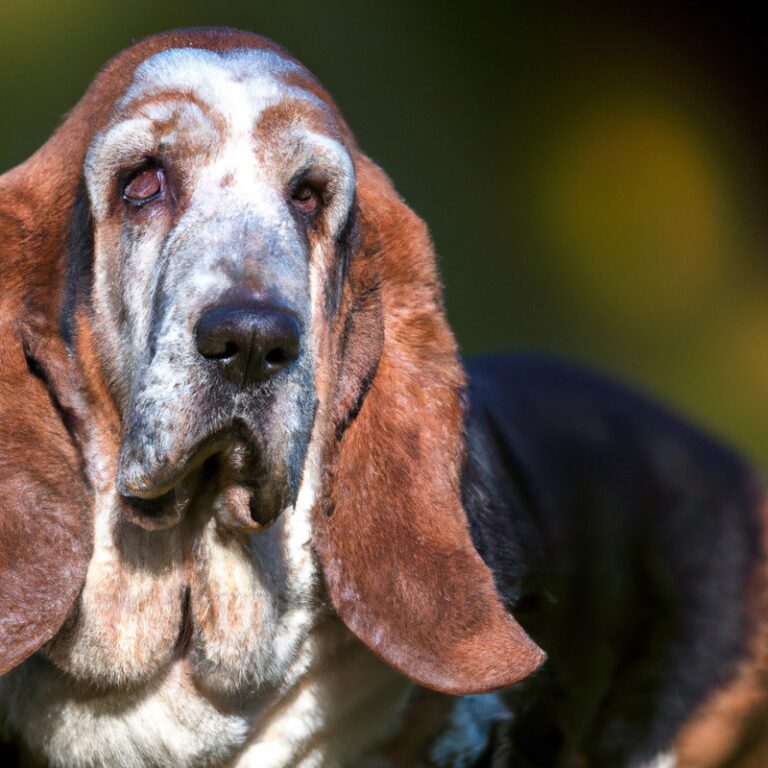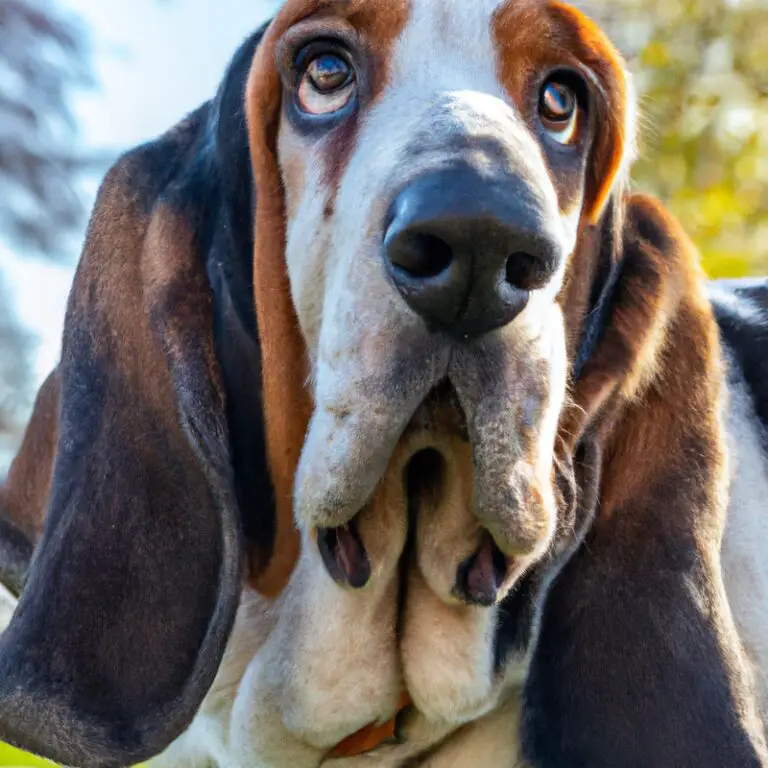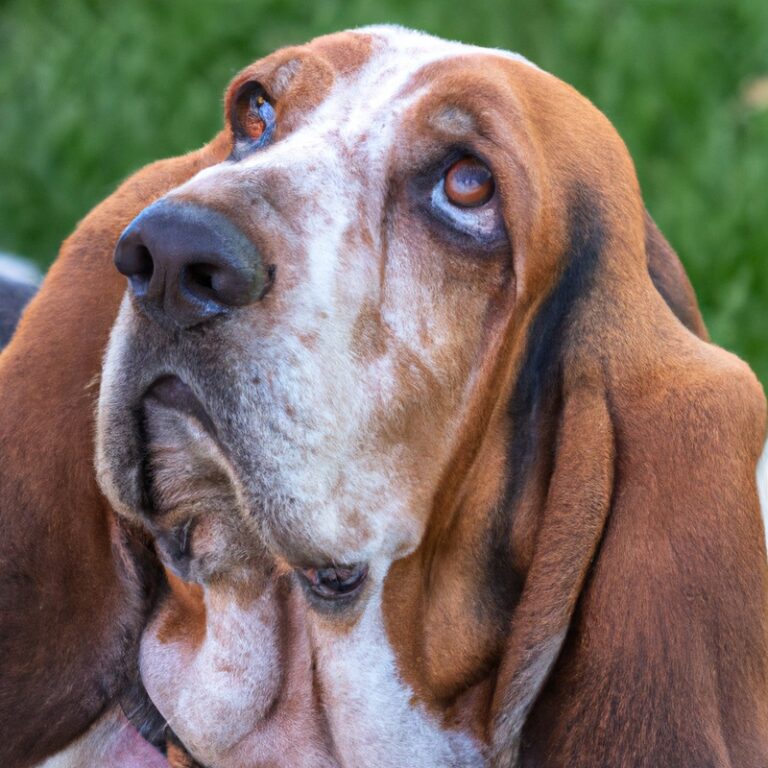Are Basset Hounds Prone To Obesity?
Key Takeaways:
- Basset Hounds have a high tendency to become obese.
- Their long, low body structure and love for food contribute to their weight gain.
- Obesity in Basset Hounds can lead to various health issues.
- Proper diet and exercise are crucial for preventing obesity in this breed.
If you’ve ever laid eyes on a Basset Hound, you’ll understand how hard it is not to fall in love with their droopy ears and soulful eyes.
But beyond their adorable appearance, there’s something you should know – Basset Hounds have a tendency to pack on the pounds.
That’s right, these lovable pups are prone to obesity.
Why is that?
Well, it all comes down to a combination of genetics, lifestyle, and nutrition.
In this article, I’ll take you through the basics of Basset Hounds, the factors contributing to their weight gain, the health risks associated with obesity, and most importantly, how you can prevent and manage their weight.
So, if you own a Basset Hound or are thinking about getting one, stay tuned for some valuable insights!
| Factors | Yes | No |
| Genetic predisposition | ✅ | |
| Slow metabolism | ✅ | |
| Overeating tendency | ✅ | |
| Poor exercise endurance | ✅ | |
| Droopy facial structure | ✅ | |
| Limited portion control | ✅ | |
| Regular exercise routine | ✅ | |
| Moderate calorie intake | ✅ |
Understanding Basset Hounds
The Basics of Basset Hounds
Basset Hounds are a unique breed known for their long ears, droopy eyes, and low-slung bodies. They have a friendly and gentle temperament, making them great family pets.
Bassets are medium-sized dogs with short legs and a large, powerful chest.
They were originally bred for hunting purposes, specifically tracking game with their excellent sense of smell. Basset Hounds require regular exercise and mental stimulation, but they are generally laid-back and enjoy lounging around.
It’s important to provide them with a balanced diet, regular veterinary check-ups, and plenty of love and attention.
Basset Hound Characteristics and Temperament
Basset Hounds are known for their distinctive looks and laid-back temperament.
They have a long body, droopy ears, and a wrinkled face that is hard to resist.
These dogs are generally gentle, friendly, and good-natured.
They are also known to be excellent with children and get along well with other pets.
Bassets love to relax and can be a bit stubborn at times, but their loyalty and affection make them wonderful companions.
Just be prepared for some snoring and drooling!
Factors Contributing to Obesity in Basset Hounds
Genetic Predisposition
Basset Hounds have a genetic predisposition to obesity. This means that they are more prone to gaining weight compared to some other dog breeds.
Their metabolism may be slower, making it easier for them to pack on the pounds.
Additionally, their long bodies and short legs make exercise more challenging. It’s important for Basset Hound owners to be aware of this genetic predisposition and take proactive steps to manage their dog’s weight to prevent obesity and associated health problems.
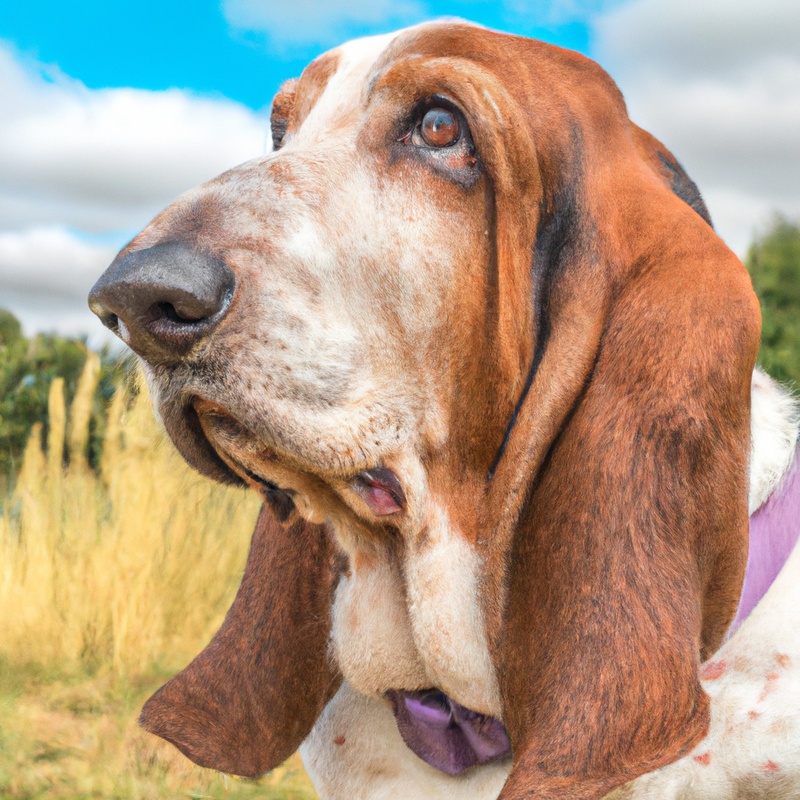
Sedentary Lifestyle
A sedentary lifestyle can contribute to obesity in Basset Hounds. These dogs have a tendency to be couch potatoes if not encouraged to be active.
Limited physical activity can lead to weight gain and other health issues.
To combat this, it’s important to provide regular exercise and playtime for your Basset Hound. Engaging them in walks, interactive toys, and mental stimulation activities will help keep them active and prevent obesity.
Overfeeding and Poor Nutrition
Overfeeding and poor nutrition are significant factors contributing to obesity in Basset Hounds.
Feeding them excessively or providing them with low-quality food can lead to weight gain and health issues.
Basset Hounds have a tendency to overeat, so it’s important to establish a balanced feeding routine and portion control.
Providing them with a high-quality, nutrient-rich diet suitable for their breed can help prevent obesity and ensure their overall health and well-being.
Remember, moderation and proper nutrition are key to keeping your Basset Hound at a healthy weight.
Lack of Exercise and Mental Stimulation
Basset Hounds are prone to obesity due to a lack of exercise and mental stimulation.
These dogs have a tendency to be couch potatoes, which can lead to weight gain.
It’s important to provide them with regular physical activity and mental enrichment to prevent obesity.
Taking them for daily walks, playing interactive games, and providing puzzle toys can keep them active and engaged.
Mental stimulation not only helps prevent boredom but also helps keep their minds sharp.
By incorporating exercise and mental stimulation into their daily routine, we can help keep Basset Hounds healthy and fit.
Health Risks Associated with Obesity in Basset Hounds
Orthopedic Issues
Orthopedic issues are a concern for overweight Basset Hounds.
Excess weight puts strain on their bones and joints, leading to conditions like hip dysplasia and intervertebral disc disease.
These orthopedic issues can cause pain, difficulty in movement, and reduced quality of life for the dog.
It is important to manage their weight to minimize the risk of these problems and ensure their overall well-being.
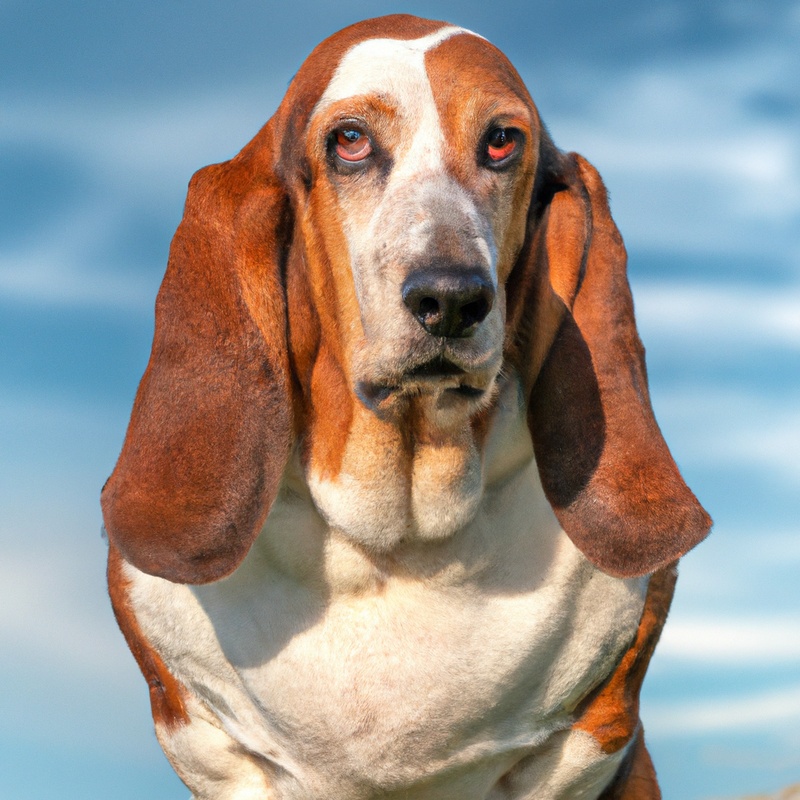
Joint Problems and Arthritis
Joint problems and arthritis are common health risks associated with obesity in Basset Hounds.
These issues occur when excess weight puts strain on the joints, leading to discomfort and inflammation.
Bassets are already prone to skeletal issues due to their long bodies and short legs, so obesity exacerbates the problem.
Arthritis, a degenerative joint disease, can cause pain, stiffness, and difficulty in movement.
It’s important to manage and prevent obesity in Basset Hounds to minimize the risk of joint problems and arthritis.
Regular exercise, a balanced diet, and maintaining a healthy weight can help alleviate these issues.
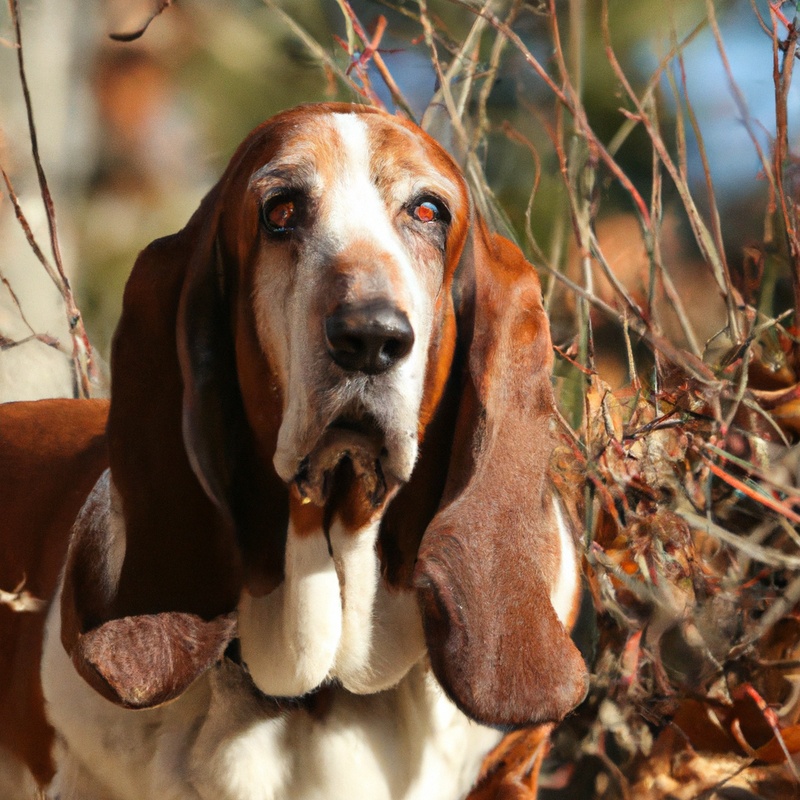
Cardiovascular Diseases
Basset Hounds are prone to cardiovascular diseases, which can be a serious health risk associated with obesity.
These diseases can include hypertension, heart disease, and congestive heart failure.
Obesity puts strain on the heart and can lead to high blood pressure and other heart-related issues.
It’s important to manage your Basset Hound’s weight to reduce the risk of cardiovascular diseases.
Regular exercise, a balanced diet, and regular veterinary check-ups can help maintain a healthy weight and reduce the chances of developing these conditions.
Preventing and Managing Obesity in Basset Hounds
Balanced Diet and Portion Control
A balanced diet and portion control are essential for preventing and managing obesity in Basset Hounds. It’s important to provide them with high-quality dog food that is specifically formulated for their nutritional needs.
Avoid overfeeding and limit treats to prevent excessive weight gain.
Pay attention to portion sizes and feed them appropriate amounts based on their age, size, and activity level. Regularly consult with a veterinarian to ensure you’re meeting their dietary requirements and addressing any weight-related concerns.
Regular Exercise and Physical Activities
Regular exercise and physical activities are essential for preventing and managing obesity in Basset Hounds.
Daily walks, interactive play sessions, and mental stimulation exercises are great ways to keep them physically active and mentally engaged.
It is important to create a consistent exercise routine and gradually increase the intensity as they build stamina.
Remember to tailor the activities to their age, health, and energy levels.
By providing regular exercise, you can help your Basset Hound maintain a healthy weight and overall well-being.
Mental Stimulation and Enrichment
Mental stimulation and enrichment play a vital role in preventing and managing obesity in Basset Hounds.
Providing them with engaging activities and stimulation can help keep their minds active and prevent boredom, which can lead to overeating.
Interactive toys, puzzle feeders, and training sessions are excellent ways to mentally stimulate your Basset Hound.
Incorporating daily playtime, regular walks, and socialization with other dogs can also provide mental enrichment.
Keeping your Basset Hound mentally stimulated and enriched will not only help prevent obesity but also contribute to their overall well-being and happiness.
Regular Veterinary Check-ups
Regular veterinary check-ups are essential for the health and well-being of your Basset Hound. During these visits, your veterinarian will be able to assess your dog’s overall health, monitor their weight, and address any potential issues early on.
They may also recommend specific dietary or exercise changes to prevent obesity.
Additionally, these check-ups allow for important vaccinations and preventive care measures to be administered. By staying proactive with regular vet visits, you can ensure your Basset Hound leads a happy and healthy life.
Tips for Weight Management in Basset Hounds
Choosing the Right Food
Choosing the right food for your Basset Hound is essential in maintaining a healthy weight.
Look for high-quality dog food that is specifically formulated for large breed or weight management.
Avoid foods with excessive fillers and artificial additives.
It’s best to consult with your veterinarian for dietary recommendations based on your Basset Hound’s age, activity level, and any specific health concerns.
Remember to provide fresh water at all times and monitor your dog’s weight regularly to make any necessary adjustments to their diet.
Feeding Schedule and Treats
Feeding Schedule and Treats: Establishing a regular feeding schedule is important for managing your Basset Hound’s weight. I recommend feeding them twice a day, dividing their daily portion into two equal meals.
This helps prevent overeating and promotes a balanced metabolism.
As for treats, it’s best to opt for low-calorie options or even use their regular food as treats. Be mindful of the portion size and frequency to avoid excessive calorie intake.
Exercise Routine and Playtime
Exercise Routine and Playtime are essential for managing the weight of Basset Hounds.
Regular physical activity helps keep them fit and prevent obesity.
I recommend at least 30 minutes to an hour of exercise daily, such as walks, jogging, or playing fetch.
Bassets also enjoy mental stimulation through puzzle toys and interactive games.
Remember to adjust the exercise intensity based on your dog’s age and health condition.
Make sure to consult your veterinarian for specific guidelines.
Monitoring and Adjusting Weight
Monitoring and adjusting your Basset Hound’s weight is essential for their overall health and wellbeing. Regularly weigh your dog and track their weight to ensure they are within a healthy range.
If you notice your Basset Hound gaining too much weight, consult your veterinarian for guidance on adjusting their diet and exercise routine.
It’s important to make gradual changes to their food intake and increase their physical activity. Remember, consistency is key when it comes to maintaining a healthy weight for your furry friend.
Final Verdict
Basset Hounds are indeed prone to obesity due to a combination of factors, including genetic predisposition, a sedentary lifestyle, overfeeding, and lack of exercise. However, it is crucial to understand the health risks associated with obesity in Basset Hounds, such as orthopedic issues, joint problems, and cardiovascular diseases.
To prevent and manage obesity in these lovable dogs, a balanced diet, portion control, regular exercise, mental stimulation, and regular veterinary check-ups are essential.
By following these tips for weight management, Basset Hound owners can ensure the health and well-being of their furry companions.

